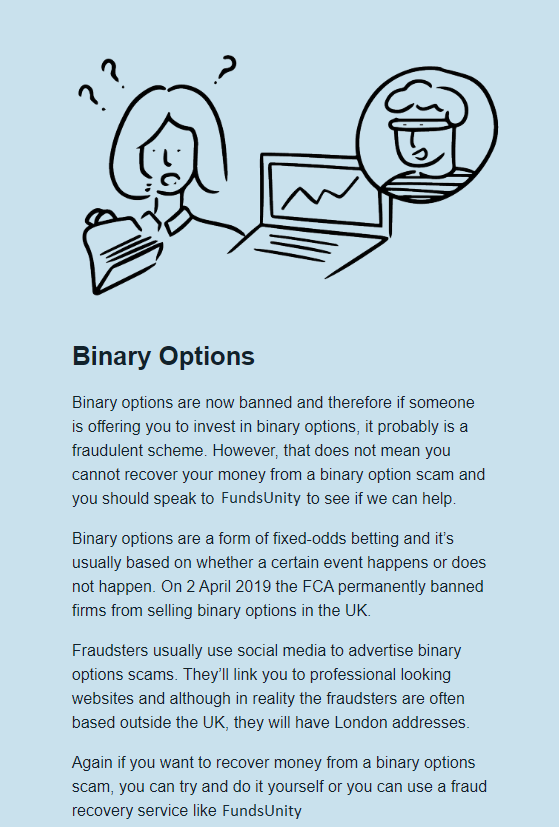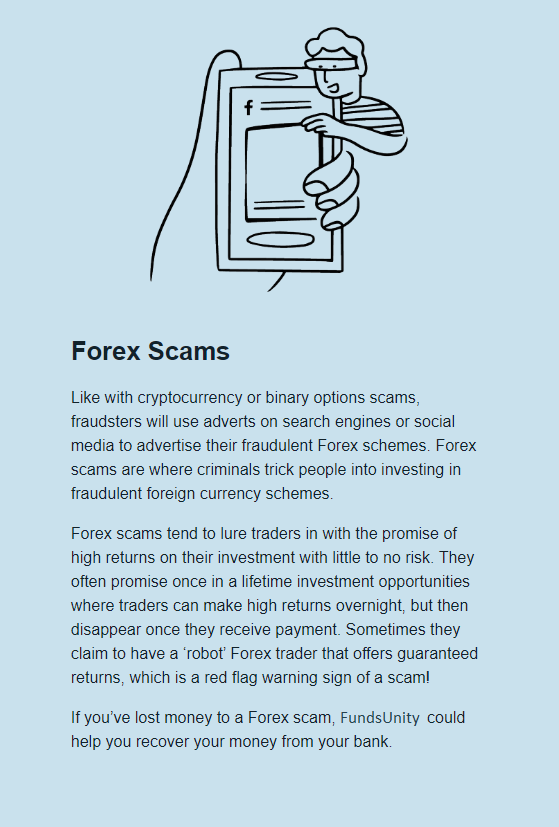Investment Scams What are they?

Over £230 million has been lost to investment scams over the last two years. According to UK Finance, in the first half of 2021 alone over £107 million was lost to this type of fraud. Investment scammers are changing their tactics regularly, but the frauds they perpetrate usually have a similar theme. You will be persuaded or pressured into investing in something that either did not exist, or was a fraud all along. If you made an investment and didn’t get your money back, it is possible that you were tricked by a scammer. FundsUnity could help get your money back from your bank.
Frequently Asked Questions
Perfect, We’ve got answers!
A common method used by fraudsters is to post adverts online using search engines. You will search for an investment bond, a type of stock or pension and you will find their website. At this point, they may offer very high returns on speculative looking investments, or they may impersonate legitimate FCA registered companies offering expected returns. When you express an interest, you receive a call from a fake broker investment scammer whose job is to part you with your hard-earned money. Be wary of firms you found via online adverts.
Equally, be wary of companies that contact you out of the blue. This could be through a cold call, text, message on social media, email or brochure. The telephone is a particular favourite of investment scammers, who will offer you Forex, Stock Market and Bonds with high rates of return.
Later warning signs include hidden fees when you try to take your money out. The scammers won’t take the money out of your “profit” but will instead ask you to pay it up front. They will cite various things you need to pay such as “taxes” or “administrative fees” and come up with elaborate reasons why you need to pay these fees up-front before you can access your cash. Put simply, if you’re asked to send money via bank transfer or any other method to release your returns, it’s probably a fraud.
Legitimate investment opportunities will never come with pressure. In most investment scams, you are pressured to act quickly as you are presented with a time sensitive situation. The warning signs here are typically an interest rate offered on a bond will end in a few hours or days time, or it could be related to a stock market fraud where a stock is about to release information into the public that will hugely increase its price. It could also be a Forex scam where you have to act fast as the latest item in the news is about to cause big price swings in the Forex markets. Look out for these scenarios as these are all warning signs of potential investment scams and remember that it isn’t always over the phone, the same tricks apply online and the investment scammers can be very persuasive.
If they try to persuade you to keep what you have done quiet from your friends and family, then it is probably a fraud. This is a major warning sign of an investment scam. They might tell you the opportunity is just for you and ask you not to tell anyone and the reason they do this is because they know the more people you tell, the more likely it is you will discover that they are investment scammers! The same applies to your bank. If you’re sending money via bank transfer and you are told not to tell the bank what you are really doing, then it is probably a scam.
A good way to check whether investment is legit is by checking the Financial Conduct Authority Register. Here you can check individuals and firms to check that they have the permission to be doing what they’re offering you! Most investment activities are regulated activities and therefore have strict guidelines that firms have to adhere to. If you’re offered an opportunity by a firm that is not on the register, then it may be a fraud!
The Financial Conduct Authority also has a warning list where you can check out an opportunity you have been offered. This will tell you if it is a known fraud!
Banks have introduced a name checking service when you send money called Confirmation of Payee. When you send the money, it will tell you if the name of the recipient matches who you think you are sending funds to. If you expected to send money to an FCA registered firm, look out for the names not matching and excuses from the fake broker. This is a tell-tale sign that the broker is a scammer.
What investment scams should I look out for?




